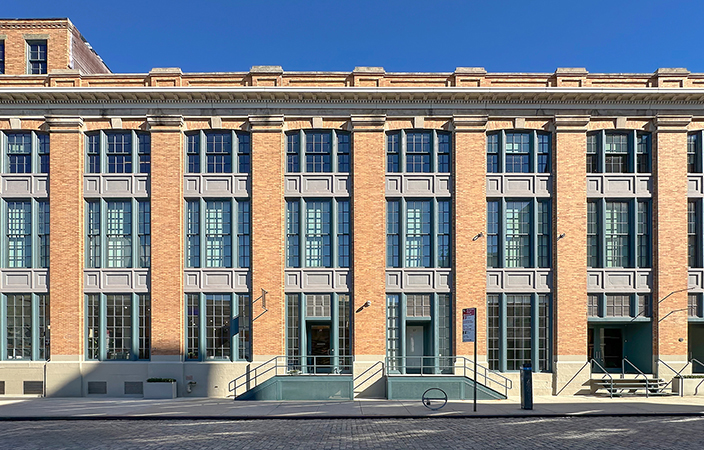A lawyer discusses co-op and condo renovations: Where to start in the planning process? - by C. Jaye Berger

Offices of C. Jaye Berger
If you have just had the closing on a new co-op apartment and are planning to renovate, there are many things you will need to take care of before any actual work begins. A lot of this depends on the extent to which you are planning to renovate. It can vary from renovating just the kitchen and a bathroom to a gut renovation. It might even involve building more space on the roof. For some of you, many of these things will already be in place. For others, the suggestions in this article will be a wake-up call.
First, you need to have things squared away with your co-op or condo. Many condos also have alteration agreements. You will need to submit an alteration agreement with copies of the contracts and required certificates of insurance. However, before you can do that, you will need to have the design for what you want to have done to show the building. In other words, you will probably already have retained and been working with an interior designer, an architect or both, to design what you want to have done in the apartment. This also presumes that you have contracts with these individuals or companies. I cannot tell you how many times the people who come in to consult with me tell me they do not have written contracts with the design professionals.
It is always recommended that you have these contracts reviewed by an attorney who works in this area of the law, before you sign them. I always have suggestions to give my clients about improving the arrangements they are planning. The clients are usually focusing mainly on the financial aspect of the project. What will the designer or architect’s fee be ? How much work they can afford to have done for their budget.
As a lawyer who reviews these types of agreements with frequency, I am looking at the contractual liability aspects, to see where there may not be a “meeting of the minds” and how it can be improved. For example, a client may think “I do not need to have the designer visiting the project every week. I know what I want and would rather spend that money on something directly pertaining to the project. I will just call them to visit when I need them.” As a construction attorney, I would advise the client that this is short-sighted thinking. I would tell them they need the designers’ expertise throughout the project. We would discuss the contractual provision for this topic and the financial aspect of having that service.
The client would then work with the design professional to prepare a set of plans that can be submitted to the board of the co-op for review and approval. The alteration agreement allows the board to have those plans reviewed by a consulting architect, at the shareholder’s expense, to ensure that the design will not cause any problems for the co-op. It is common for the co-op’s architect to send comments back to the shareholder’s architect for review and revision. This might involve the design of a new bathroom which is located over a bedroom area, where the co-op is objecting to “wet over dry” work. It might involve work needed to change risers or windows. There can be back and forth until the designs are finally approved. Sometimes this can take a few months and shareholders may become anxious about how long the process is taking and how it is delaying the project.
Not all projects are so elaborate and that can also cause concern. Some people just hire a contractor for what may seem like a small, cosmetic renovation, such as installing new kitchen cabinets. They may be easily able to start the work, because there are no plans to review. However, the project can morph into a more involved project, where no plans have been submitted and really approval is needed from the NYC DOB and the co-op. In such cases, the board will likely stop the project all together.
Even if your building is lax about your obtaining approvals for some reason, these issues can come back to haunt when you try to sell the unit and the contract of sale asks you to make a representation that you obtained all the applicable approvals.
A lady came to me for legal advice after her building stopped her project. She told me that on the building alteration form she submitted, she literally wrote, “kitchen cabinets and bath.” However, the contractor she was using had bigger ideas for the renovation and suggested they could “open up the apartment” by raising the ceiling. Her justification was that it was not “structural” work, in her opinion. She said she was not moving any walls. She left out the part about her not owning the space above her ceiling and that she did not have the right to work there. She had not informed the board about her intention to do work there. The building saw that the contractor was removing metal from this area and it was questionable where this metal was coming from. The board stopped the work and had an engineer (at the shareholder’s expense) come in to examine what was done. They eventually made her restore the ceiling.
Before you start your project, spend some time consulting with legal counsel knowledgeable in this area and you will have fewer problems with your project.
C. Jaye Berger, Esq., is an attorney and the principal at Law Offices C. Jaye Berger, New York, N.Y.
SABRE coordinates sale of six properties totaling 199,845 s/f


Lower interest rates and more loan restructuring can help negate any negative trending of NOI on some CRE projects - by Michael Zysman

Strategic pause - by Shallini Mehra and Chirag Doshi

Behind the post: Why reels, stories, and shorts work for CRE (and how to use them) - by Kimberly Zar Bloorian








.jpg)
.gif)
.gif)